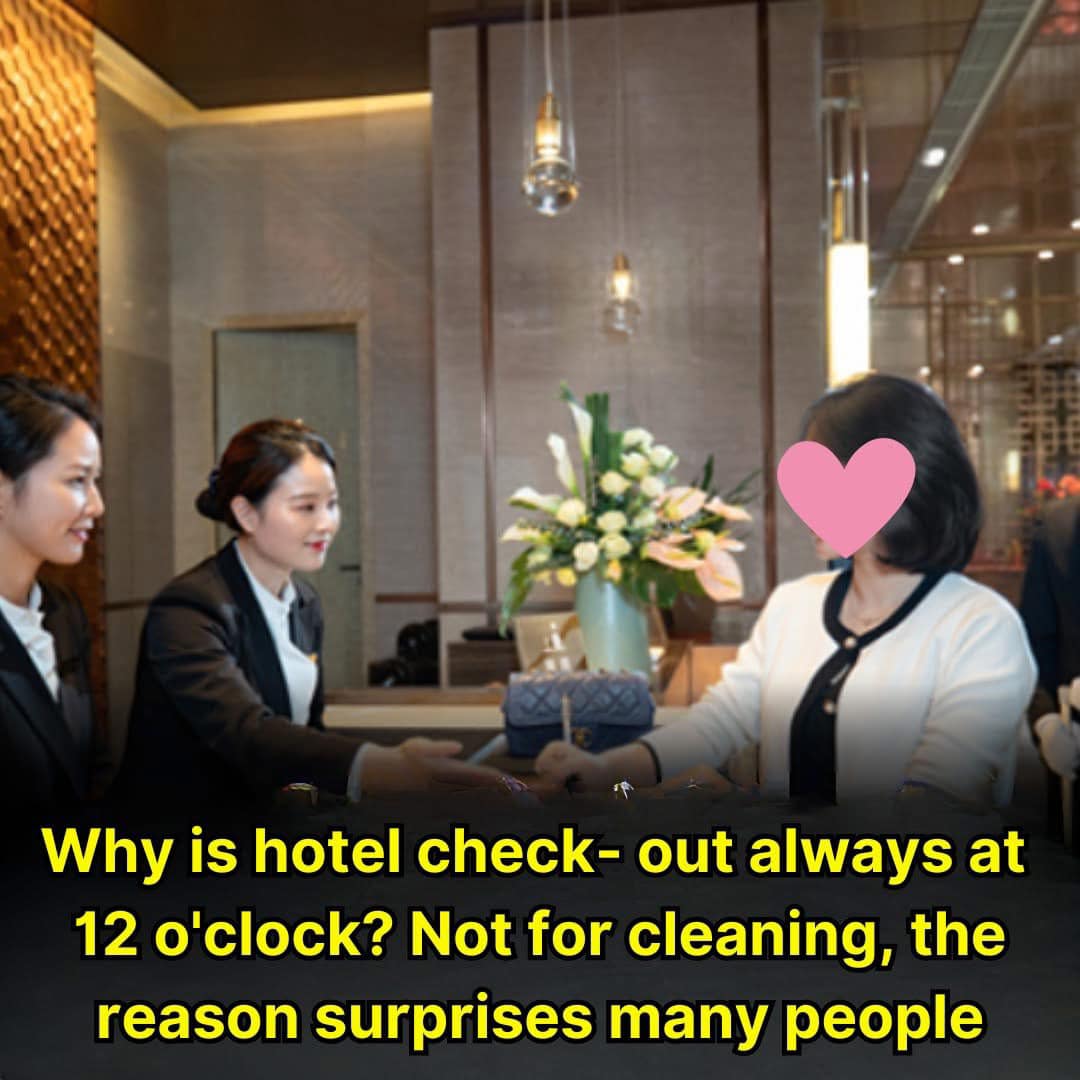When staying at a hotel, one thing remains consistent across the globe: the standard check-out time of 12:00 PM. Most guests assume this timing exists purely to allow the cleaning staff enough time to prepare the room for the next visitor. However, the truth behind this universally accepted time is far more complex and rooted in logistics, operational efficiency, and guest experience. In this article, we’ll uncover the real reasons behind this standardized check-out time and why it plays a crucial role in hotel operations worldwide.

At first glance, the 12:00 PM check-out time seems arbitrary. Why not a full 24 hours from the check-in time? Most hotels typically allow guests to check in at 2:00 PM, creating a two-hour window between check-out and the arrival of the next guest. This buffer is not merely for cleaning—it’s part of a broader operational strategy. Hotel rates are charged per night, not per 24-hour cycle. If guests were allowed to check in and check out at any hour, managing bookings would become chaotic, and ensuring room availability for incoming guests would be nearly impossible.
Imagine if a guest checked in at 6:00 AM. It wouldn’t make sense to ask them to check out at the same time the next day, nor would it be practical to expect cleaning staff to operate around such inconsistent schedules. The standardized timing provides predictability and fairness for both guests and hotel staff, ensuring that every guest receives the same level of service and time allocation for their stay.
Beyond fairness, the two-hour gap between check-out and check-in serves as a vital window for much more than cleaning. After a guest checks out, the hotel staff swings into action. First, the room is inspected for any damages, missing items, or mini-bar usage that may result in additional charges. This inspection is crucial for preventing financial losses and ensuring accountability from guests.
Next comes the financial processing stage, where the guest’s payment is finalized, deposits are returned, and billing discrepancies are addressed. This administrative step is just as important as the physical turnover of the room. Without proper processing time, financial errors could occur, affecting both the hotel’s revenue and guest satisfaction.
Of course, cleaning remains a significant part of this two-hour period. While it might seem like two hours is ample time to prepare a room, hotel cleaning is far more intensive than most people realize. Staff must strip and replace all bed linens, sanitize surfaces, vacuum floors, restock amenities, and ensure appliances like TVs, air conditioning units, and showers are fully functional. The bathroom, in particular, requires meticulous attention. Every surface must be scrubbed, sanitized, and inspected to meet cleanliness standards. In high-end hotels, this process is even more detailed, often including aromatherapy sprays, decorative towel arrangements, and thorough inspections by a supervisor before the room is declared ready for the next guest.
The importance of this two-hour turnover time becomes even clearer when considering the sheer scale of hotel operations. Large hotels with hundreds or even thousands of rooms must coordinate cleaning, inspections, and administrative tasks across multiple teams. Without a standardized check-out time, managing this workforce would be chaotic and inefficient. Hotels operate on tight schedules to ensure rooms are consistently ready for guests arriving at 2:00 PM, and any delays could snowball into larger logistical issues.
For guests, the predictability of a 12:00 PM check-out time offers peace of mind. Knowing when they need to vacate their room allows travelers to plan their day efficiently, whether they have a flight to catch, a meeting to attend, or simply want to enjoy a leisurely morning. It also sets clear expectations—guests know exactly what they’re paying for when they book a hotel room.
Consistency across the industry also makes travel planning easier. Whether you’re staying in a small boutique hotel or a sprawling resort, the standard check-out time provides uniformity. Guests can plan their itineraries with confidence, knowing they’ll need to leave their room by noon and can typically check in to their next accommodation by 2:00 PM.
Furthermore, this structured timing benefits hotel staff by providing them with a predictable schedule. Housekeeping teams can plan their tasks systematically, front desk staff can manage check-outs and check-ins without overlap, and managers can oversee operations more effectively. Without this consistency, the risk of miscommunication and operational errors would increase significantly.
Despite the operational importance of these timings, guests occasionally request late check-outs or early check-ins. While many hotels try to accommodate these requests, they often charge extra fees or limit such accommodations based on availability. These policies aren’t meant to inconvenience guests but rather to maintain the delicate balance of hotel logistics.
In the end, the standardized 12:00 PM check-out time is far more than just a convenience for cleaning staff—it’s a carefully calculated strategy that keeps the gears of the hotel industry turning smoothly. It ensures fairness for guests, allows administrative tasks to be completed efficiently, and provides housekeeping teams with the time they need to meet cleanliness standards.
So, the next time you pack your bags and head out of your hotel room by noon, you’ll have a deeper appreciation for the intricate system working behind the scenes. The 12:00 PM check-out isn’t just a random rule—it’s a cornerstone of efficient hotel management. It’s not merely about clean sheets and fresh towels; it’s about consistency, fairness, and ensuring that every guest’s experience is seamless from check-in to check-out. Whether you’re traveling for business or pleasure, understanding the reasoning behind this timing adds a new layer of appreciation for the effort hotels invest in creating a smooth, reliable, and enjoyable stay for every guest.





